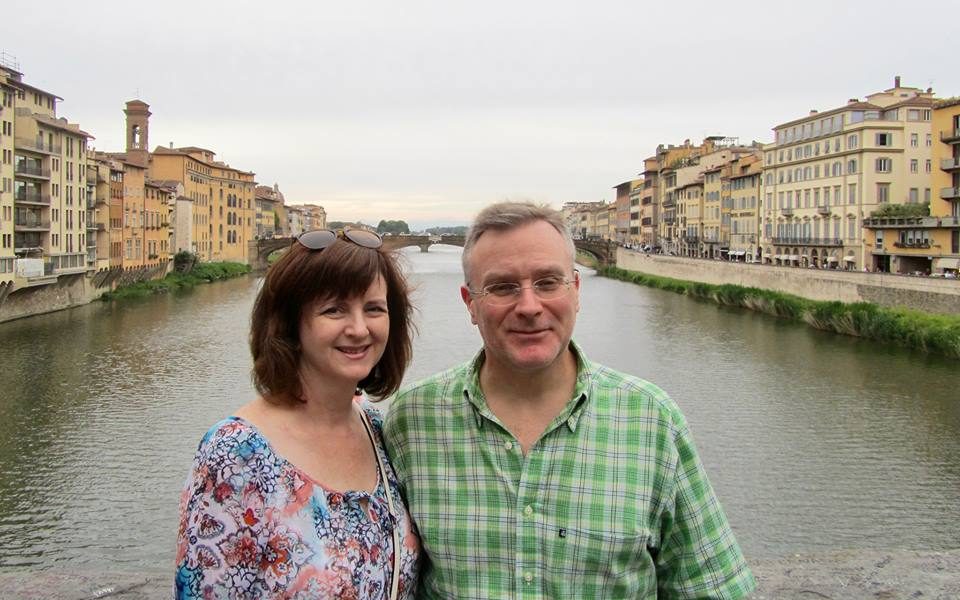

Today we’d like to introduce you to Robert Brown.
So, before we jump into specific questions about the business, why don’t you give us some details about you and your story.
When I’m asked this question, I literally have to go back to as early as I can remember as a child when I knew that I wanted a career as an engineer or scientist when I grew up.
Just about everything I did was in preparation for that vocation, from reading to experimenting to tinkering with machines, creating “inventions,” and playing with microscopes, telescopes, and science kits. In other words, I possessed an insatiable curiosity about life, and I immersed myself in learning about how the world works. Eventually, I went to the Georgia Institute of Technology to major in aerospace engineering, but I finished my formal engineering education in mechanical engineering.
An odd thing occurred to me in engineering school, though, and that was I began to doubt that I really wanted to be an engineer. After I graduated, I taught high school math and physics for two years at a local private school after I discovered that I enjoyed teaching as an after school tutor. Then a brief foray toward medical school (that didn’t pan out) led me to the brink of financial exhaustion. I wound working as an engineer at a local telecommunications equipment manufacturer, where I eventually migrated into strategic planning.
Strategic planning was where I found my groove again when I was 27. It combines elements of finance, economics, mathematics, strategy, psychology, and engineering problem-solving. The specific field of decision science captured my attention, so I poured myself into a self-directed study of the field. Out of that effort and some fortuitous events that led me to consulting, I eventually became a partner and senior consultant in decision support consultancy based in Atlanta and Houston that primarily served the oil, gas, and pharmaceutical industries, although we did occasional work across the board of other commercial verticals.
At the end of 2008, the economic crisis forced us into a significant reduction of staff, including me, so I started my own consultancy still serving those same kinds of clients, but my scope has broadened to include government agencies, venture and project financing, as well as others.
Overall, has it been relatively smooth? If not, what were some of the struggles along the way?
Being self-employed has been anything but smooth, especially in the financial climate we’ve seen since 2009. Although my revenues have consistently gone up year over year, keeping revenue consistently coming in within a year is always a challenge. Business development is by far the most difficult thing to address as a sole proprietor. When you’re billing, you’re not developing business; but when you’re focused on developing business, you’re not billing. It leads to a vicious cycle called “porpoising.” The key has been to develop alliances with other service providers that include my offering as a value-added contribution and to develop passive forms of income, like offering seminars, selling books, or subscriptions to decision support web applications.
Alright – so let’s talk business. Tell us about Incite! Decision Technologies – what should we know?
Primarily, I help people measure the value and risk associated with important, high-stakes planning, portfolio management, cost reduction, process improvement, or capital financing decisions; and then I help them make informed trade-offs to help them optimize the potential value against the risks they face. The “high stakes” aspect does not just apply to large amounts of money or large companies; rather, it applies to the risk tolerance of the group making a decision. In other words, what I do helps small businesses to gigantic ones make better decisions with regard to risk and value when the exposure they face or the value they could capture is significant compared to the value of their capital budgets. If an investment in doing something, whether it’s to cut costs, enable business, reduce risks, develop new products/services, etc., would really hurt if it were misallocated, then I help sort that out in a repeatable, transferable, rapid, and transparent process.
I also develop decision support tools for making operational or repeatable decisions that face a significant degree of uncertainty, and I teach collaborative decision making for organizations.
While I’ve had the opportunity to contribute this kind of analytic support practically within every industry vertical on some of the biggest and riskiest capital investments, I’m most proud of the recent work I’ve been doing with a group called Finance Technology Leverage (www.ftl.vc), which is a Silicon Valley-based project finance company that is enabling some of the most exciting new technologies in the world, from biotech to aerospace. Our most recent success was bringing together the financial resources to develop the world’s first on-orbit satellite servicing robotic satellite, something that some have said was impossible to finance with private funds.
Any shoutouts? Who else deserves credit in this story – who has played a meaningful role?
Everyone who ever enjoys some degree of success in their chosen fields does so with the support and guidance of mentors. I have enjoyed significant mentors over my entire life, from my parents to certain teachers who took a special interest, to senior colleagues who transferred their knowledge and idiosyncratic acumen via modeled behavior and collegial discussions.
The beauty of being young is that you haven’t been spoiled by cynicism yet and haven’t yet learned what people expect you not to try or accomplish. But the problem with being young is that you don’t have a long horizon view of life, which causes you to over emphasize trivial issues. Mentors help you avoid the problem of horizon blindness. The problem with mentors, though, is that by the time they’re old enough to be a mentor half of what they know is obsolete. Therefore, I frequently tell young professionals that they always need at least two concurrent mentors in their life (~15 yrs. older and ~30 yrs. older) to help them overcome both the near-term and long-term perspectives of life that provide a mature understanding of current conditions as well as a mature understanding of long horizon priorities.
Contact Info:
- Website: www.incitedecisiontech.com
- Phone: 678-947-5997
- Email: rdbrown@incitedecisiontech.com
- Twitter: @InciteDecisions
- Other: https://www.linkedin.com/in/rdbrown3/







Getting in touch: VoyageATL is built on recommendations from the community; it’s how we uncover hidden gems, so if you know someone who deserves recognition please let us know here.




















Stefan Choquette
July 23, 2017 at 7:17 pm
I’ve had the pleasure and good fortune to work with Rob on several complex energy development projects for major international companies. Rob is a brilliant, open minded and multi-talented consultant who brings much knowledge to a project team and successfully guides the team through difficult decision making.
Robert
August 4, 2017 at 1:26 am
I sincerely appreciate that, Stefan. You have been a great friend and colleague, too.